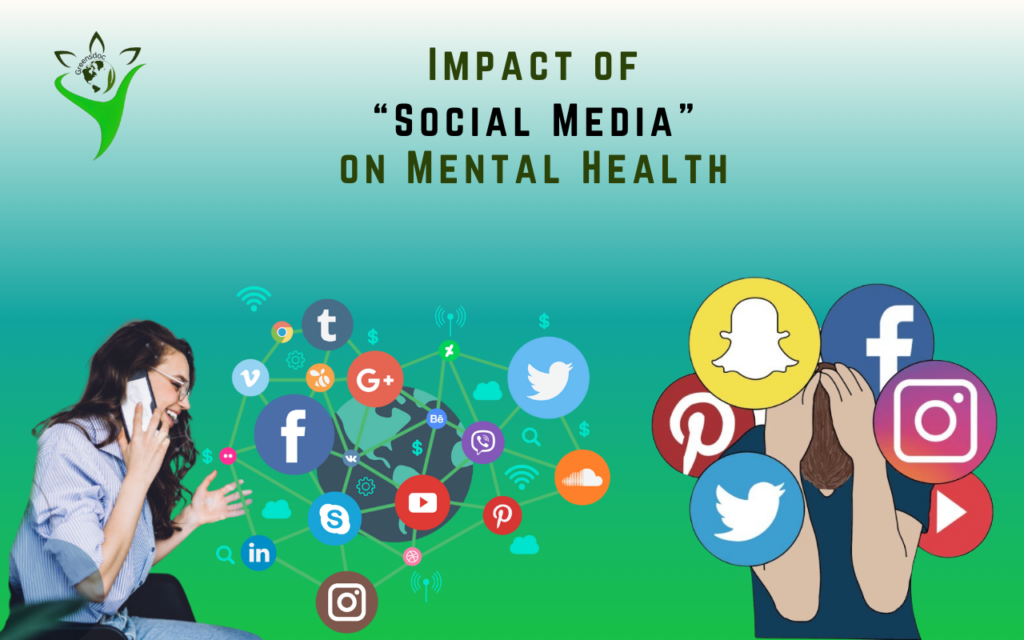In an era dominated by technology and interconnectedness, social media platforms have become an integral part of our daily lives. While these platforms offer unprecedented opportunities for communication, connection, and information sharing, there is a growing concern about their impact on mental health. This article delves into the complex relationship between social media and mental well-being, exploring both the positive and negative aspects of this digital phenomenon.
The Positive Side
1. Connection and Support:
Social media platforms provide a virtual space where individuals can connect with friends, family, and communities across the globe. These connections can be valuable for people facing mental health challenges. Online support groups and communities foster a sense of belonging and understanding, allowing individuals to share experiences and coping strategies.
2. Mental Health Awareness:
Social media has played a pivotal role in breaking the stigma surrounding mental health. Celebrities, influencers, and ordinary individuals share their personal stories, raising awareness and normalizing discussions about mental well-being. This has contributed to a more open dialogue, encouraging people to seek help and support when needed.
3. Educational Resources:
Various social media platforms host content that educates users about mental health issues. From infographics to blog posts, these resources offer valuable information on recognizing symptoms, coping mechanisms, and available treatments. Increased awareness can empower individuals to take proactive steps toward better mental health.
The Negative Impact
1. Comparison and Self-Esteem:
One of the most discussed negative aspects of social media is the tendency for users to compare their lives to the curated versions presented by others. Constant exposure to seemingly perfect lifestyles can lead to feelings of inadequacy, lower self-esteem, and even depression. The “highlight reel” effect can distort reality, creating unrealistic expectations.
2. Cyberbullying:
The anonymity afforded by social media can unfortunately give rise to cyberbullying. Hurtful comments, online harassment, and the pressure to conform to societal standards can have severe consequences on an individual’s mental health. Cyberbullying incidents have been linked to increased levels of anxiety and depression, especially among younger users.
3. Fear of Missing Out (FOMO):
The curated nature of social media content can exacerbate the fear of missing out. Seeing others participating in events or experiences can lead to a sense of exclusion and dissatisfaction with one’s own life. Constant exposure to FOMO can contribute to stress and anxiety, negatively impacting mental well-being.
Striking a Balance
While acknowledging the potential negative impacts, it’s essential to emphasize the importance of responsible social media use. Here are some guidelines / tips for maintaining a healthy relationship with social media:
1. Mindful Consumption
Be aware of the content you consume and its impact on your emotions. Unfollow accounts that make you feel inadequate and curate your feed to include positive and uplifting content.
2. Set Boundaries
Establish limits on your social media usage. Designate specific times for checking your accounts and avoid mindlessly scrolling through feeds. This can help reduce the risk of falling into the comparison trap.
3. Prioritize Real-Life Connections
Balance your online interactions with face-to-face connections. Nurture relationships in the physical world to foster a more authentic sense of community and support.
In conclusion, the impact of social media on mental health is a multidimensional issue. While it offers opportunities for connection, support, and awareness, it also poses challenges related to self-esteem, cyberbullying, and FOMO. By approaching social media use mindfully and setting boundaries, individuals can navigate the digital landscape in a way that prioritizes their mental well-being. As we continue to integrate technology into our lives, it’s crucial to strike a balance that fosters a healthy and positive relationship with the digital world



